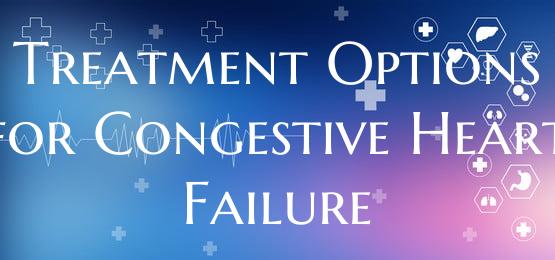
Treatment Options for Congestive Heart Failure
Congestive heart failure is a chronic and progressive condition where the heart is unable to pump blood effectively to meet the body's needs. It is a serious medical condition that requires timely intervention and ongoing management. Fortunately, there are several effective treatment options available for individuals with congestive heart failure.
1. Lifestyle Modifications: - Diet: A heart-healthy diet low in sodium and saturated fats can help manage symptoms of congestive heart failure. Patients are often advised to limit their salt intake to reduce fluid retention. - Exercise: Regular physical activity tailored to individual capabilities can improve heart function and overall health. - Weight management: Maintaining a healthy weight can reduce the strain on the heart and improve symptoms. - Quitting smoking: Smoking can worsen heart failure symptoms, so quitting is strongly recommended.
2. Medications: - Diuretics: These medications help the body eliminate excess fluid, reducing edema and improving breathing. - ACE Inhibitors or ARBs: These drugs help dilate blood vessels, lower blood pressure, and reduce the workload on the heart. - Beta-blockers: These medications slow the heart rate and reduce blood pressure, improving heart function. - Aldosterone antagonists: These drugs help prevent the retention of salt and water, reducing stress on the heart.
3. Devices: - Implantable cardioverter-defibrillator (ICD): This device can monitor heart rhythms and deliver an electric shock to restore a normal heart rhythm in case of a life-threatening arrhythmia. - Cardiac resynchronization therapy (CRT): CRT devices help synchronize the contractions of the heart's chambers, improving pumping efficiency.
4. Surgical Interventions: - Heart Valve Repair or Replacement: Repairing or replacing damaged heart valves can improve blood flow and reduce strain on the heart. - Coronary Artery Bypass Grafting (CABG): CABG surgery can improve blood flow to the heart muscle by bypassing blocked arteries.
5. Heart Transplant: - In severe cases of congestive heart failure where other treatments have been ineffective, heart transplant may be considered as a last resort.
It is essential for individuals with congestive heart failure to work closely with their healthcare team to develop a comprehensive treatment plan tailored to their specific needs and medical history. Regular monitoring and adherence to the prescribed treatment regimen are crucial for managing congestive heart failure effectively and improving quality of life.